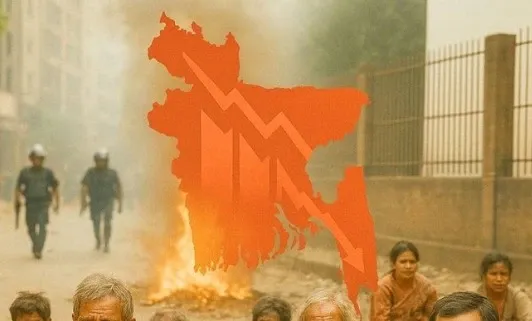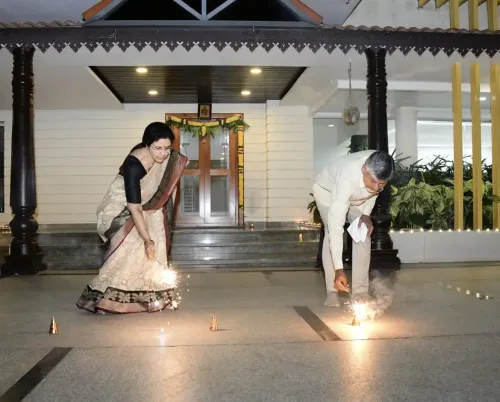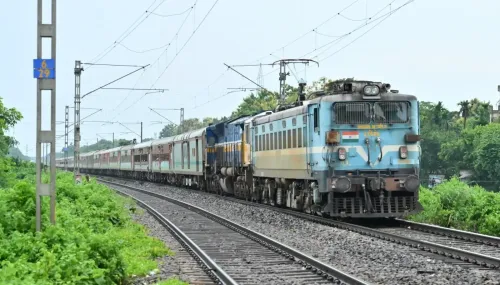What Concerns Does Awami League Have About Bangladesh's Future Under Yunus Administration?

Synopsis
Key Takeaways
- Concerns over political instability affecting economic growth.
- GDP growth has dropped to 3.97%, indicating economic distress.
- Recent campus unrest signals lack of political stability.
- Investor confidence is waning due to political risks.
- Future prosperity hinges on resolving current political turmoil.
Dhaka, Sep 5 (NationPress) The Awami League of Bangladesh has voiced significant apprehensions regarding the nation's trajectory, claiming it is ensnared in political and economic turmoil under the rule of the Muhammad Yunus-led interim administration, adversely impacting the lives of countless citizens.
Criticizing the Yunus administration, the party declared, “The blame for this predicament rests entirely with the existing leadership. Even after a year in governance, the interim government has not succeeded in fostering political stability. On the contrary, new crises continue to surface. The very administration that labeled itself a ‘reformer’ has overseen the most sluggish economic growth in two decades.”
The Awami League pointed out that in recent times, disturbances at universities, confrontations among political factions, and fresh incidents on campuses nationwide have conveyed a clear message: political stability remains unattainable.
Furthermore, they highlighted that the economy has become the primary victim of this instability, with repercussions felt by ordinary Bangladeshis.
The Awami League asserted that experts have long contended that sustainable economic advancement is impossible without political stability in the nation. They questioned the existence of such stability and how investors could be expected to trust the system when political leaders face attacks and Section 144 (prohibiting all gatherings) must be enforced at universities.
“The truth is that investors have adopted a wait-and-see approach. They wish to monitor which direction the political landscape shifts. Due to this uncertainty, new projects are stalled, and existing ones face risks. Consequently, job opportunities are dwindling, and unemployment is climbing,” the Awami League remarked.
Referring to the Bangladesh Bureau of Statistics, the party indicated that the nation's GDP growth for the current fiscal year has plummeted to 3.97 percent, the lowest in the last twenty years. The Awami League emphasized that this statistic is not merely a number but a representation of the declining living standards of millions, as reduced growth results in fewer jobs, lower incomes, and escalating poverty in Bangladesh.
Highlighting the recent violent confrontations involving members of the Jatiya Party (JaPa) and Gono Odhikar Parishad in Kakrail, Dhaka, the party questioned the military's involvement, which directly intervened and baton-charged civilian leaders. According to the Awami League, the Kakrail incident has raised significant concerns among both local and international investors.
“When the military intervenes in political disputes, it casts doubt on the future of democratic institutions. By the end of June, private sector credit growth was merely 6.4 percent. This indicates that businesses, apprehensive of political risks, have lost interest in seeking loans for new investments,” stated the Awami League.
“The future of our country hinges on the political climate in the upcoming months. If violence and unrest persist, Bangladesh will descend into an even deeper crisis. While healing the economy will require time, inflicting new wounds can be done in an instant,” they added.









